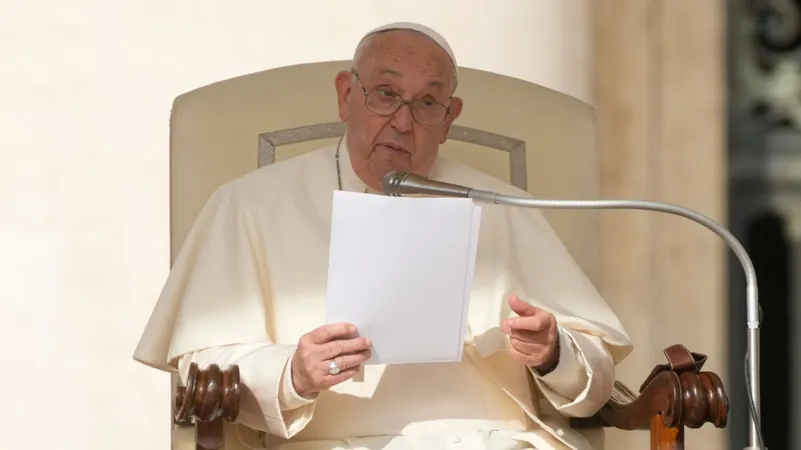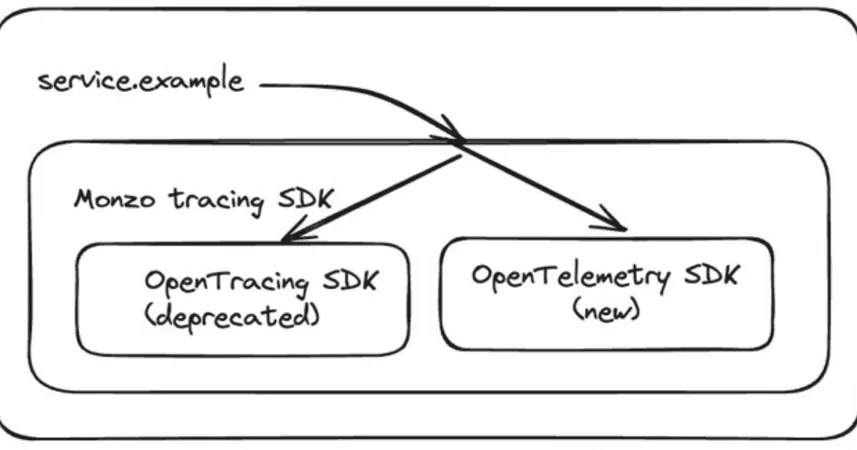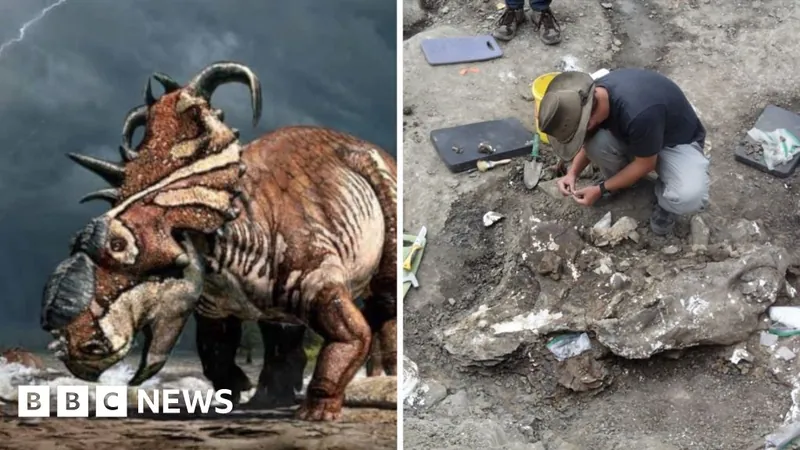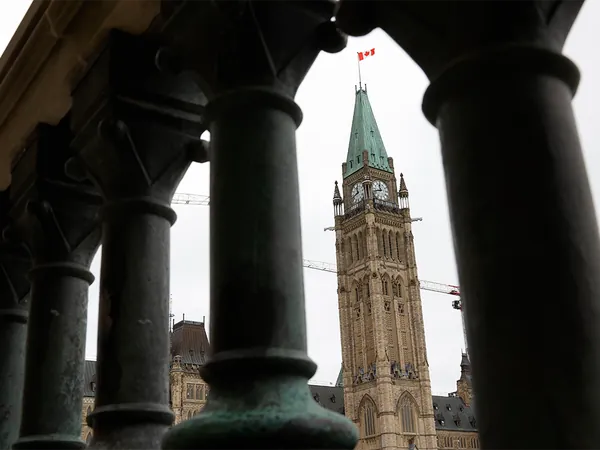
Shocking Vatican Purge: Pope Expels Bishop and 9 Others from Peruvian Movement Over Disturbing Abuses!
2024-09-25
Introduction
In a stunning and unprecedented move, Pope Francis has decided to expel ten individuals—including a bishop, priests, and lay members—from a controversial Catholic movement in Peru after a meticulous Vatican investigation revealed alarming “sadistic” abuses of power. This severe action signifies a deep commitment to addressing the troubling issues within the Sodalitium Christianae Vitae (SCV), also known as the Sodalitium of Christian Life.
Background
This drastic decision follows last month's expulsion of the group's founder, Luis Figari, who faced grave accusations including sodomizing his recruits. The Vatican's investigation unveiled a shocking array of abuses ranging from physical violence, coercive spiritual control, and economic misconduct, to extreme invasions of privacy, such as hacking the communications of victims.
Announcement of Expulsion
The revelation was announced by the Peruvian Bishops' Conference, which published a statement from the Vatican embassy detailing the Pope's rare and decisive action. The report disclosed that the investigation found not only abuses by Figari but also disturbing misconduct by other clergy within Sodalitium, indicating a pervasive culture of exploitation and manipulation.
Historical Context
Historically, Figari established the SCV in 1971 as a conservative reactionary group aimed at generating “soldiers for God,” attracting approximately 20,000 members across Latin America and the United States at its peak. However, the group’s oppressive practices came to light largely due to the courageous testimonies of victims, including Pedro Salinas, who co-authored the eye-opening book, 'Half Monks, Half Soldiers,' in 2015 detailing the SCV's abuses.
Vatican Investigation
The Vatican’s recent findings seem to have finally put an end to what many describe as a long-standing cycle of impunity surrounding the movement. The investigation, led by top Vatican officials expert in dealing with sex crimes, was initiated in response to increasing pressure from victims and advocacy groups.
Reactions from Key Figures
Archbishop José Antonio Eguren, one of the most senior figures expelled, had previously resigned from his role as the bishop of Piura over his connections to the Sodalitium's misconduct. Eyewitness accounts from journalists like Paola Ugaz have also surfaced, asserting that they faced direct threats and harassment—including cyber attacks—due to their investigative efforts against the Sodalitium's shady dealings.
Voices of the Victims
Ezgar and Ugaz expressed their relief over the Pope's announcements, interpreting them as a sign that justice can prevail, albeit after significant delays. They argue that the systemic power wielded by the Sodalitium made accountability nearly impossible until recently.
Significance of the Vatican's Actions
The Vatican’s explicit reference to such severe abuses—prevailing against a backdrop of careful secrecy—marks a watershed moment in tackling clerical abuse and misconduct. Observers are now left to ponder how these expulsions will impact the structure and influence of the Sodalitium Christianae Vitae moving forward.
Challenges Ahead
While the Vatican's actions signal a new dawn for justice, the path to genuine reparation for victims remains fraught with challenges. Survivors like Salinas continue to advocate for the complete dissolution of the organization, declaring the expulsions a monumental step but far from sufficient.
Conclusion
As the dust settles, it remains to be seen whether this is merely an isolated incident or the beginning of a more profound transformation within one of the world's oldest institutions grappling with its past. Will future reforms genuinely address the deep-seated issues, or are they destined to repeat the same cycles of secrecy and neglect? The world watches closely for answers.









 Brasil (PT)
Brasil (PT)
 Canada (EN)
Canada (EN)
 Chile (ES)
Chile (ES)
 España (ES)
España (ES)
 France (FR)
France (FR)
 Hong Kong (EN)
Hong Kong (EN)
 Italia (IT)
Italia (IT)
 日本 (JA)
日本 (JA)
 Magyarország (HU)
Magyarország (HU)
 Norge (NO)
Norge (NO)
 Polska (PL)
Polska (PL)
 Schweiz (DE)
Schweiz (DE)
 Singapore (EN)
Singapore (EN)
 Sverige (SV)
Sverige (SV)
 Suomi (FI)
Suomi (FI)
 Türkiye (TR)
Türkiye (TR)